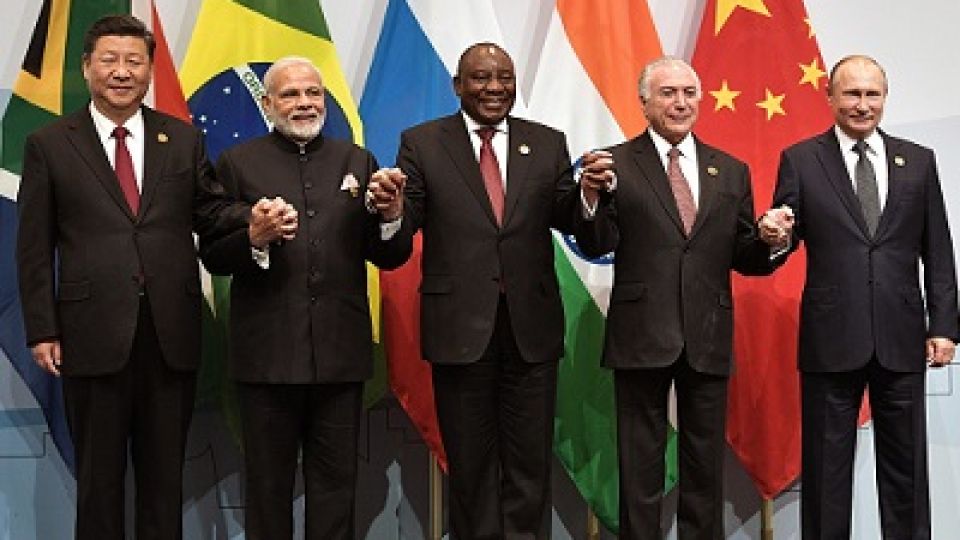by TINTSWALO BALOYI
JOHANNESBURG, (CAJ News) – SOUTH Africa’s foreign policy is at a crossroads.
The country finds itself in a tangle amid rising geopolitical tensions.
This year will go down the annals of history as one in which the southern African nation faced the greatest dilemma in juggling its foreign policy.
The upcoming Brazil, Russia, India, China and South Africa (BRICS) Summit is exacerbating South Africa’s Catch 22 as it precedes other summits to boost relations with the United States and Europe, which are nemesis to some allies within BRICS.
South Africa’s policy of non-alignment, which according to critics is merely genuine on paper, is under a litmus test.
The BRICS Summit is scheduled for Tuesday until Thursday in Johannesburg and if President Cyril Ramaphosa’s address to the nation ahead of the BRICS Summit is anything to go by, his government faces the grueling task of juggling its foreign policy.
It is a dilemma, in a week BRICS leaders, and their counterparts in Africa that are eager to join the bloc, converge in Johannesburg.
On one hand, South Africa must mend some regularly frosty relationships with some fellow African Union (AU) members, maintain relations between the continent and Asia, nurture continental ties with America as well as enhance affairs with Europe.
Ramaphosa, in his address to the nation ahead of the BRICS Summit, somehow inadvertently shed light to South Africa’s conundrum.
Amid the BRICS Summit, South Africa is inviting more than 30 African trade ministers and senior United States (US) Administration and Congressional representatives to the next forum of the African Growth and Opportunity Act (AGOA) scheduled for November this year.
The US and some BRICS nations, South Africa included, are enduring some fallout, worsened by the Russo-Ukrainian war that escalated in 2022. The US has accused South Africa of supplying arms to Russia.
South Africa is under pressure from the Western world to denounce Russia but it has stuck to its guns on non-alignment, except that it yielded to pressure that culminated in Russian president, Vladimir Putin, not attending this week’s summit.
This is in response to a warrant of arrest issued by the International Criminal Court (ICC) in the wake of the war with Ukraine.
Again, later this year, South Africa will hold the European Union-South Africa Summit.
According to Ramaphosa, this would foster South Africa’s investment and trade relations.
Overall, Ramaphosa said South Africa advocates for an open and rules-based global governance, trade, financial and investment system.
“It must be a system that does not depend on the exercise of power or unilateralism, but by the advancement of the interests of the peoples of the world,” he said.
Ramaphosa said amid all these challenges, Africa remains at the centre of his country’s foreign policy.
“We are firmly committed to strengthening the African Union so that it increases its capacity to support the achievement of greater integration on the continent.”
Ramaphosa noted Africa’s aspirations were dependent on peace and stability.
“For Africa to thrive, we must silence the guns,” he said.
That mantra has suffered setbacks with a series of coups in the Western bloc.
South Africa is directly involved in a number of peacemaking efforts, including missions in the Democratic Republic of Congo (DRC) and Mozambique.
The main opposition Democratic Alliance (DA) is however critical of the foreign policy of Ramaphosa’s African National Congress (ANC)-led government.
It says while he was Chairperson of the African Union, the opposition accused president Ramaphosa of failing to take meaningful action towards promoting human rights and the rule of law on the continent.
The party accused the government of turning a blind eye to alleged electoral manipulation in neighbouring Zimbabwe and refusing to condemn the recent passage of anti-LGBTQI+ laws in Uganda.
“Little has been done to offer solutions to on-going violent conflicts in nations such as Sudan and recently, Niger,” said Emma Louise Powell, DA Shadow Minister of International Relations and Cooperation.
The DA has accused Ramaphosa of ignoring human rights abuses committed by fellow BRICS member states against ethnic and religious minorities.
“The ANC’s-led government’s endorsement of BRICS expansion further lacks transparency in evaluation criteria,” Powell said.
“The stark disparity between South Africa’s cherished constitutional values and the country’s support for BRICS membership by nations like Saudi Arabia, Iran, Cuba, and Belarus serves as an unsettling reminder of a rudderless ship adrift in stormy seas.”
Powell also denounced South Africa’s alliances with Iran and Syria.
“As the BRICS Summit unfolds, all South Africans must now ask our leaders to define for us the kind of world they are wanting to shape, ensuring that such a vision is congruent with our democratic values as a nation,” she added.
However, many people in Africa, Asia and Latin Africa strongly feel human rights, democratic violations and rule of law by the West were not spoken about at international events in an attempt to portray Western countries as champions of human rights.
The US is widely accused of unseating most democratically elected presidents in neighbouring south America, Africa, Asia and beyond.
– CAJ News

